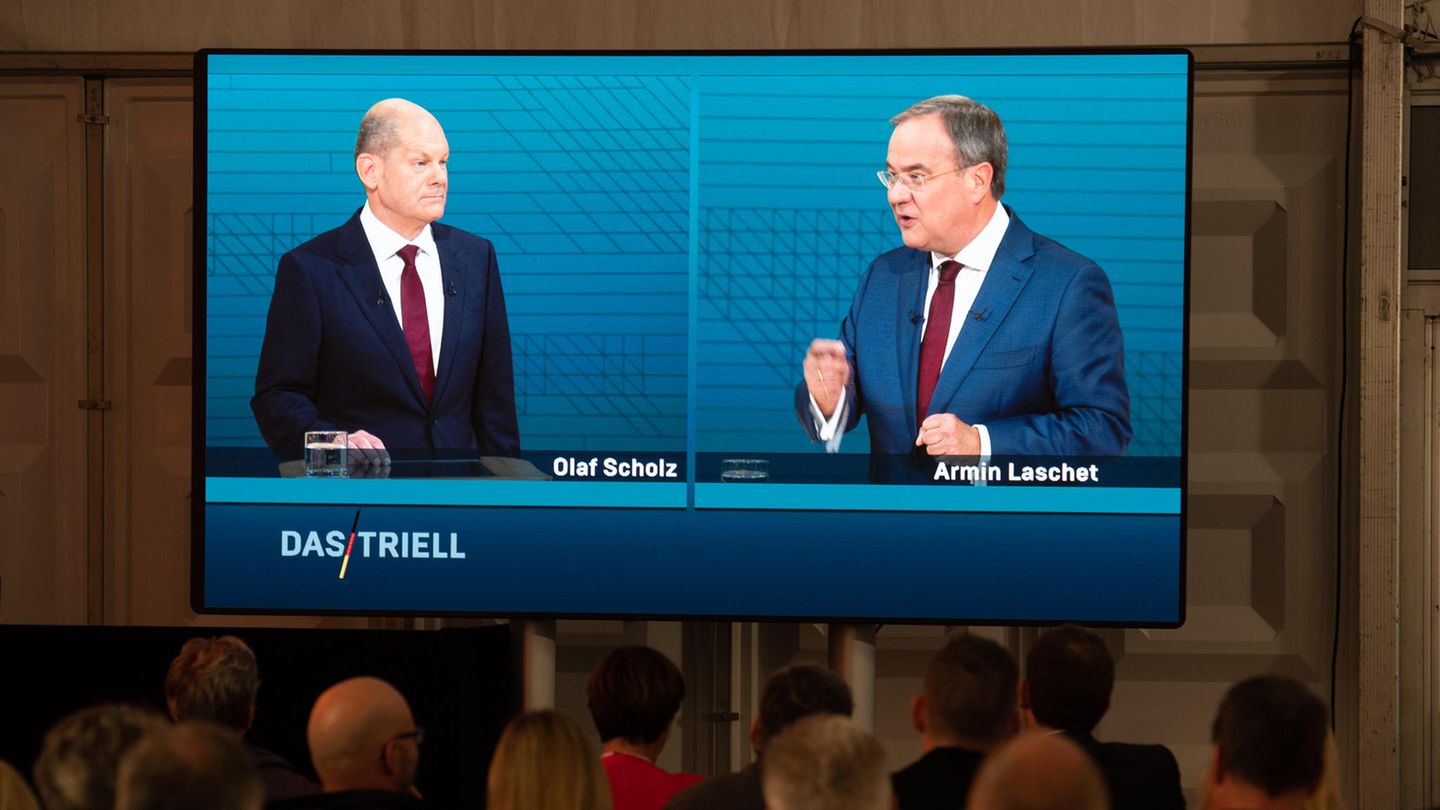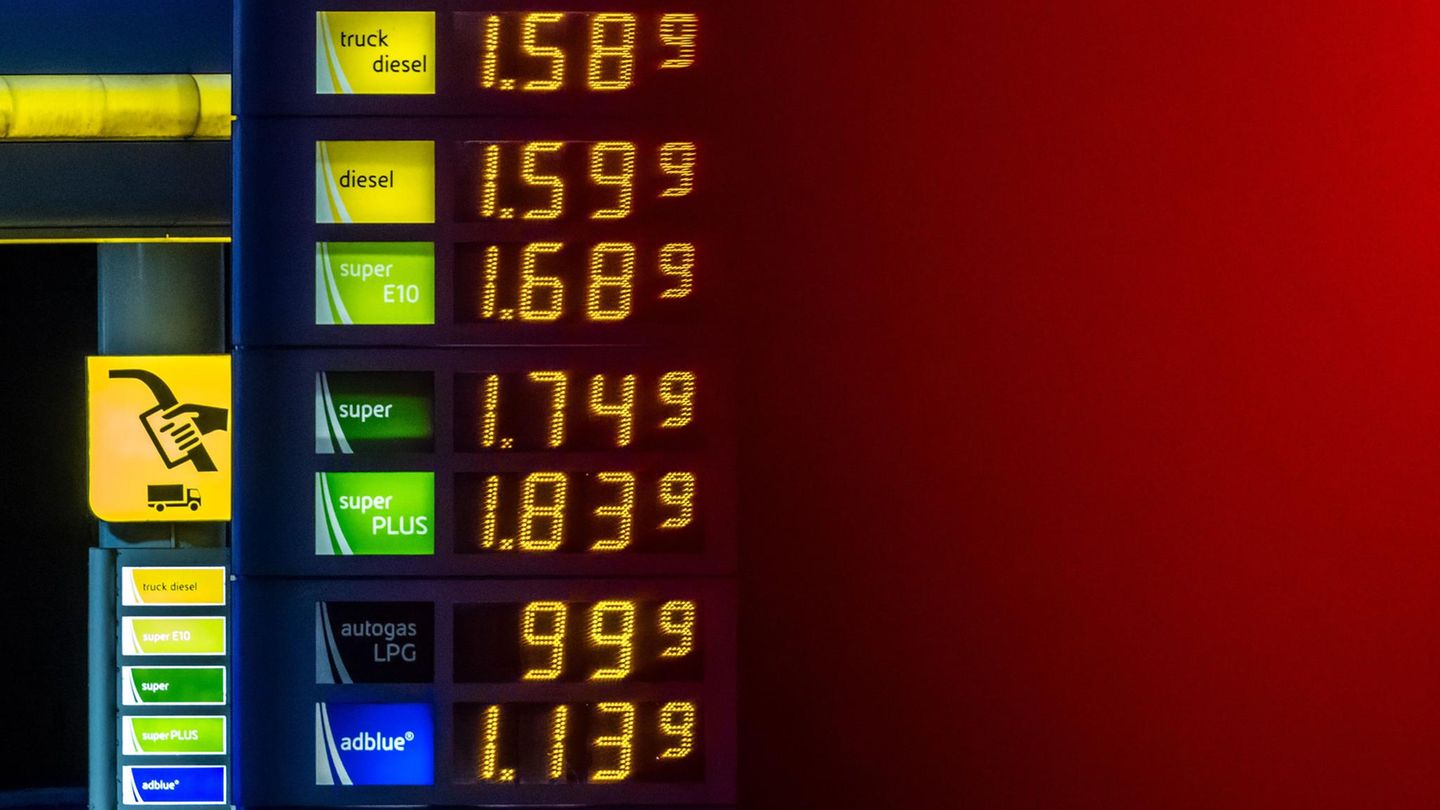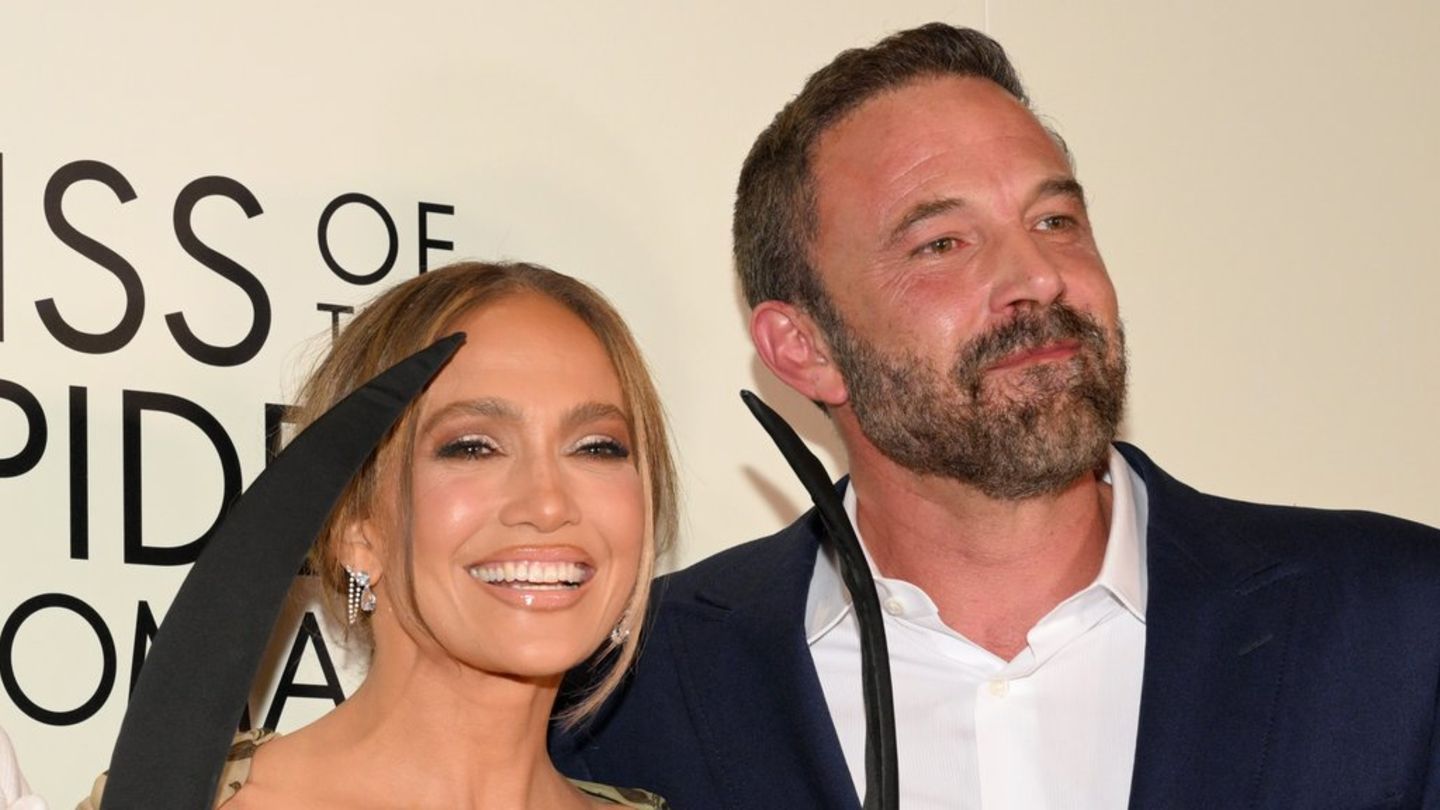Fact check
Two weeks before the election, the tone between the Union and the SPD is sharp. SPD chancellor candidate Scholz is on the defensive: Union candidate Laschet accuses him of ducking away from responsibility in three alleged scandals. Is that correct?
FIU, Bafin, Cum-Ex – so far, many voters are unlikely to be able to do much with these abbreviations. But now they are moving into focus two weeks before the federal election, and with them Finance Minister and SPD candidate for Chancellor Olaf Scholz. Because of alleged misconduct in the Ministry of Finance, the Union Chancellor candidate Armin Laschet, who is under pressure in the face of poor poll numbers, violently attacks his opponent. Scholz himself may soon have to comment on the allegations not only in the TV triall, but also in the Bundestag: The opposition wants a special meeting of the finance committee before the election.
It is mainly about a search in the Federal Ministry of Finance – but Laschet accused Scholz on Sunday of shirking responsibility for authorities assigned to his Ministry of Finance in several cases. Scholz, on the other hand, emphasized that he did not duck back, but instead “got the things going that are necessary”. The Chancellor candidates argued over the following cases:
MONEY LAUNDERING UNIT
The public prosecutor’s office in Osnabrück is investigating employees of the anti-money laundering authority FIU, which is located at customs and therefore indirectly at the Federal Ministry of Finance. The accusation: The employees are said to have not forwarded suspicious transaction reports on terrorist financing in good time, so that investigators could not intervene. In this context, there were also investigations in the Ministry of Finance – not because Ministry employees were accused, but because they wanted to get hold of e-mails between the FIU and the Ministry.
Scholz emphasized in the Triell that the investigations had nothing to do with the ministry itself. Laschet, on the other hand, pointed out that Scholz, as head of the ministry, was responsible for everything that went wrong in his house and in the subordinate authorities.
Scholz’s ministry has the technical supervision of the money laundering unit, explained Laschet. That is factually incorrect, the Ministry of Finance only has legal supervision. This means that it must ensure compliance with the law, but not assess the appropriateness of individual measures or issue instructions. Operationally, the FIU acts independently of the ministry.
It has long been known, however, that the money laundering unit is overwhelmed. Even under CDU finance minister Wolfgang Schäuble, Scholz’s predecessor in office, there was criticism that the authority had too few employees and no access to relevant police databases. According to the ministry, Scholz increased the number of employees, and the FIU can now access the data from the Federal Criminal Police Office. But experts assume that it still does not work effectively and that billions of euros of criminal origin are laundered in Germany every year.
WIRECARD SCANDAL
The money laundering unit also did not cut a good figure in connection with the alleged fraud of billions at the former stock market star Wirecard. But even more violent accusations are made against Scholz because the financial supervisory authority Bafin made serious mistakes. Similar to the FIU, the Bafin is also subordinate to the Ministry of Finance. In spite of this, Scholz had always emphasized in the Bundestag investigation committee: “The federal government is not responsible for this large-scale fraud.”
The now insolvent Wirecard AG admitted in summer 2020 that the 1.9 billion euros listed in the balance sheet could not be found. The Munich public prosecutor’s office assumes a “commercial gang fraud” – and has done so since 2015. The accounting scandal caused high damage to investors because the share had crashed.
Politically, there has long been a political dispute about who bears the main responsibility for ensuring that the fraud remained undetected for so long: the auditors who repeatedly approved Wirecard’s balance sheets or the Bafin, which banned speculation on falling prices and gave the wrong impression that they were with the company everything OK.
Scholz has since admitted that the state supervisory and control structure was not well equipped for such fraud. That is why, as he now emphasizes during the election campaign, the rules have also been changed: The Bafin was given additional powers, the responsibilities for auditing accounts were bundled, and regulations for auditors were tightened. Laschet accuses him of not personally taking responsibility for the failure of the financial regulator and of not admitting mistakes. On Sunday he said that millions of small investors had lost a lot of money as a result. That is an exaggeration, thousands were affected, but probably not millions of investors.
WITH-EX-SKANDAL
The third case is the cum-ex scandal over tax exemptions for the Hamburg Warburg Bank. Scholz is accused of having, as mayor of the Hanseatic city, influenced the fact that the tax office did not pursue claims for repayment of millions.
The 63-year-old rejects any political influence. Before the investigative committee of the Hamburg citizenship, he also stated that he had no recollection of the specific contents of several meetings with the bank owners in 2016 and 2017. However, exerting influence would have been “political stupidity,” he said. “I don’t tend to.”
With cum-ex deals, investors, banks and stock traders had cheated the German state for billions of euros for years. Shares with (“cum”) and without (“ex”) dividend entitlements were shifted back and forth. For these transactions, the parties involved had capital gains tax reimbursed, which they had never paid. Warburg Bank has to repay more than 176 million euros after the Federal Court of Justice finally declared cum-ex transactions to be criminal at the end of July.
David William is a talented author who has made a name for himself in the world of writing. He is a professional author who writes on a wide range of topics, from general interest to opinion news. David is currently working as a writer at 24 hours worlds where he brings his unique perspective and in-depth research to his articles, making them both informative and engaging.




